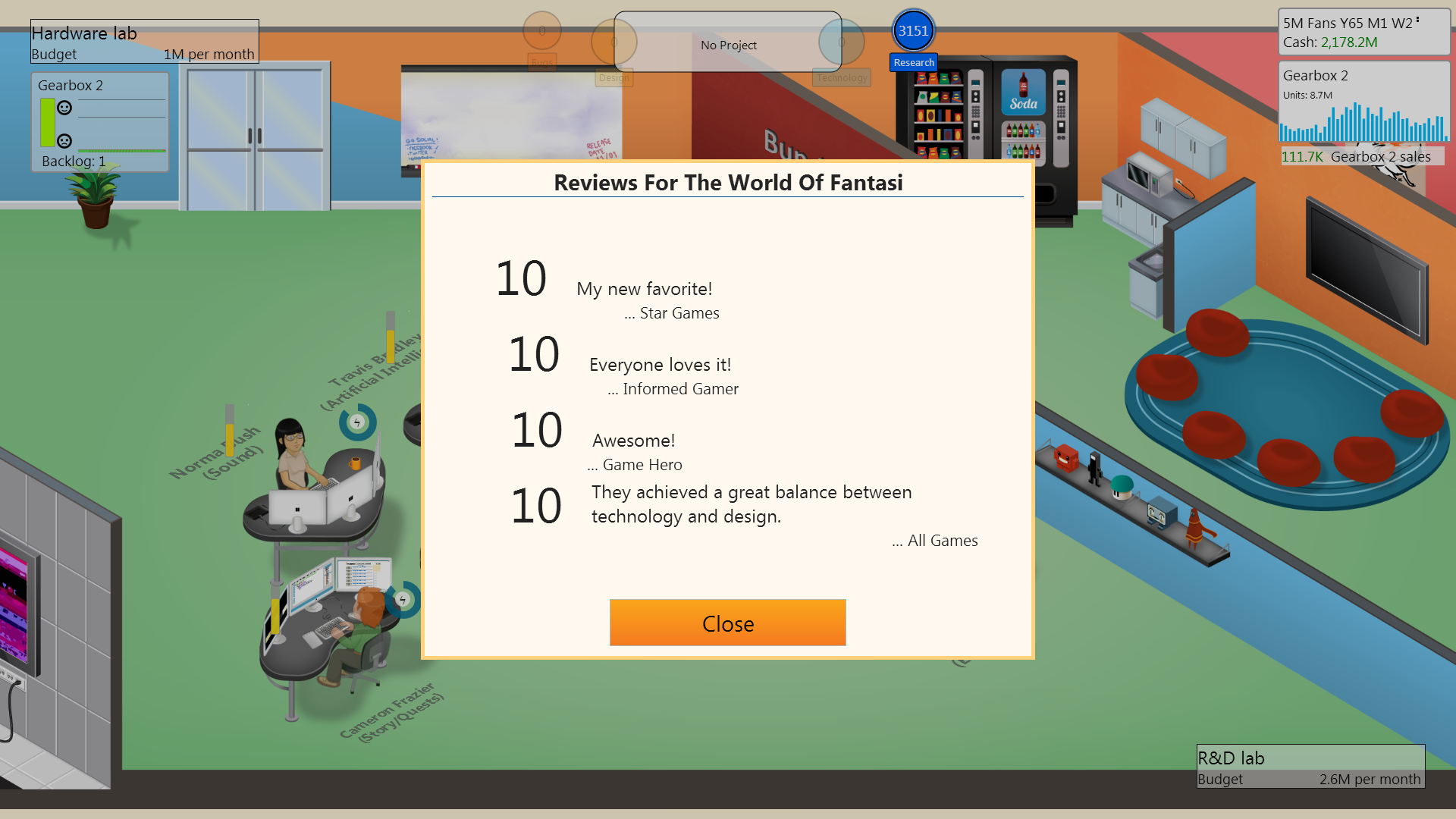INTRO
This entry is about how you can estimate the value of your small business in the context of a game or multimedia product centric production studio.
After 13 years, working in several capacities in different sized business, I’ve witnessed several start-ups fail in their infancy.
There’s many factors that come into play that determines the success or demise of any business, in this article, I will focus on one common & specific element that seems to cause many startups to halt their growth; and that’s ‘pipelines’ and ‘production process’.

Screenshot from Gamedev Tycoon (must play).
Several years ago, I’ve work in the capacity of unofficial CTO for a small business, the company had a lot of potential, full of promising ideas & a line-up of upcoming products.
At that time, .NET had just came out, promised by Microsoft as a “multi-platform” environment solution, we jumped on the bandwagon mostly because we targeting only Windows & Web at that moment.
The prototype phase of one of our first products was a success, I was able to build a solid & functional mock-up of our main product and deploy it on a Windows & Web environment with a minimum of porting issues.
.NET seemed to be a reliable framework to build our products on, even if the platform was still somewhat unproven, it gave us a good starting point.
The management was very happy and started getting new clients but I wasn’t inform of the deliveries & costs that were being communicated to our customers.
And of course, when production started, serious scheduling issues emerged.
Obviously, there was some communication mishaps between the management & technical team that brought about these issues.
But something more important and more subtle was actually causing a false perception of the management on the true value of the production capacity of the company;
In the management POV and within their limited technical understanding, they took the new emerging .NET framework as a total solution base for the entire pipeline & production process.
In their eyes and based on the successful prototyping phase, .NET was a solution that would make optimization, debugging & maintenance almost null as an expense.
CONCLUSION
And this was the ultimate error, you can’t value your production capacity based on one tool, framework or engine.
That’s why you should only estimate a companies potential once the production process, from conception to deployment and support as been established & proven.
But there’s exceptions to this, especially in the game industry, a small company can actual survive and even grow with rotten production processes & pipelines, if they have a highly markable IP and a lot of investment capital to patch up on the fly.
They will lose on the production but regain on sales.
But that reality is rare and I believe as a business men, this is a highly risky approach, especially in a saturated market.
Unity is starting to also become the holy grail of small business but a lot are learning the hard way that an standardized engine in itself won’t reduce & resolve optimization & debugging expenses.
But it as the advantage of giving an industry a common base and from that, makes it easier to find experienced knowledgeable resources & develop best practices that will reduce but not nullify costs.
I think one of the reasons that we have so much issues in the software industry with developing products at low-costs is that contrary to the manufacturing business, we don’t really deal with tangible physical elements & restraints.
And so everything seems possible until time rears it’s ugly head & kicks us back into reality.

Screenshot from Gamedev Tycoon.


